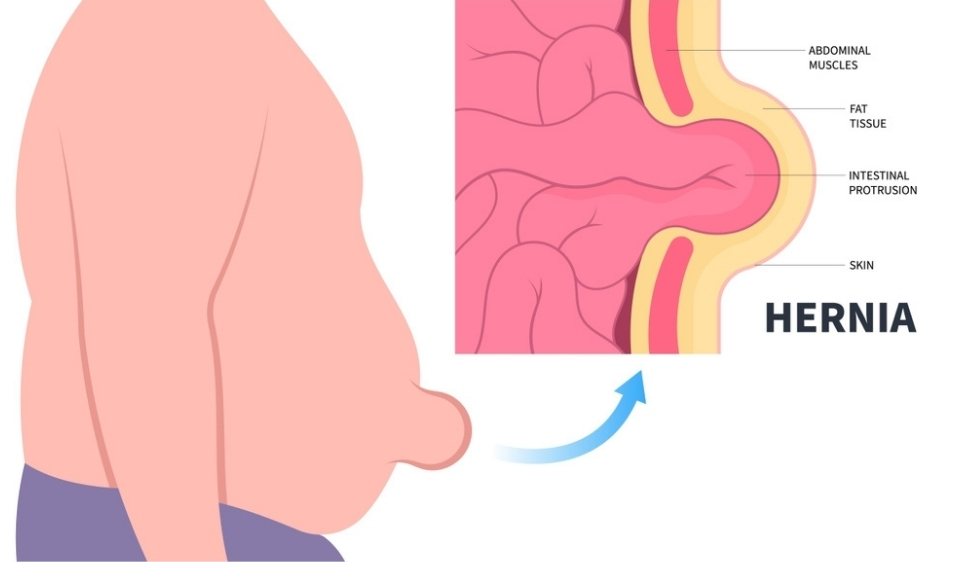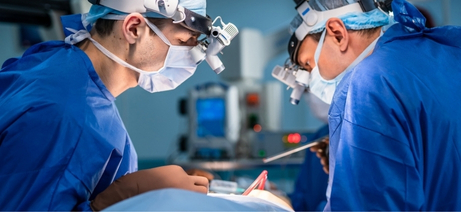Ventral Hernia

Best Ventral Hernia Treatment in Pune & Mumbai
What is a Ventral Hernia?
A ventral hernia happens when tissue bulges through a weakened area of the abdominal wall, forming a bulge. It can occur as a result of muscle weakness that is congenital, past surgeries, or excessive stress to the abdomen. It can gradually get bigger over time, causingpain and possible complications unless treated.
How to Identify a Ventral Hernia?
A noticeable bulge on the abdomen, which increases on coughing, standing, or exertion, is one of the earliest presentations of a ventral hernia. Mild pain is experienced by most, although others complain of pain, straining, or pressure in the region. Should the hernia become incarcerated, acute pain, nausea, and vomiting are warning signs of an emergency thatshould betreated as soon as possible.

Factors Leading to Ventral Hernia Formation
A number of different factors are implicated in the genesis of a ventral hernia, such as prior abdominal operation, pregnancy, obesity, a chronic cough, heavy lifting, and conditions producing persistent strain against the abdominal musculature. In other individuals, a ventral hernia can occur seemingly without cause in those with constitutionally weak connective tissues.
Advanced Treatment Options for Ventral Hernia
Because ventral hernias cannot heal by themselves, surgery is usually advised. Laparoscopic repair of a hernia is a favored option because it is minimally invasive, meaning less incision size, less pain, and quicker recovery. Open surgery can be required in more complicated cases to support the abdominal wall with a mesh to prevent recurrence.

Why Early Diagnosis is Crucial?
Neglecting a ventral hernia can cause serious complications like strangulation, wherein the herniated tissue does not receive blood supply, causing extensive pain and risk of organ damage. Early treatment guarantees less complicated recovery and avoids fatal complications.
FAQ'S
A ventral hernia occurs when tissue or part of an organ, such as the intestine, protrudes through a weakness or opening in the abdominal wall muscles. This type of hernia can develop at any location on the abdominal wall and is often visible as a bulge.
Yes. While all incisional hernias are ventral hernias, not all ventral hernias are incisional. A ventral hernia can occur naturally or from strain, whereas an incisional hernia specifically forms at the site of a surgical incision.
Yes. In some cases, a ventral hernia may press on the intestines, causing symptoms like bloating, constipation, or changes in bowel habits.
If the hernia is small and painless, your doctor might suggest monitoring. But if there’s pain, rapid growth, or signs of obstruction (like vomiting or inability to pass gas), surgery becomes urgent.




